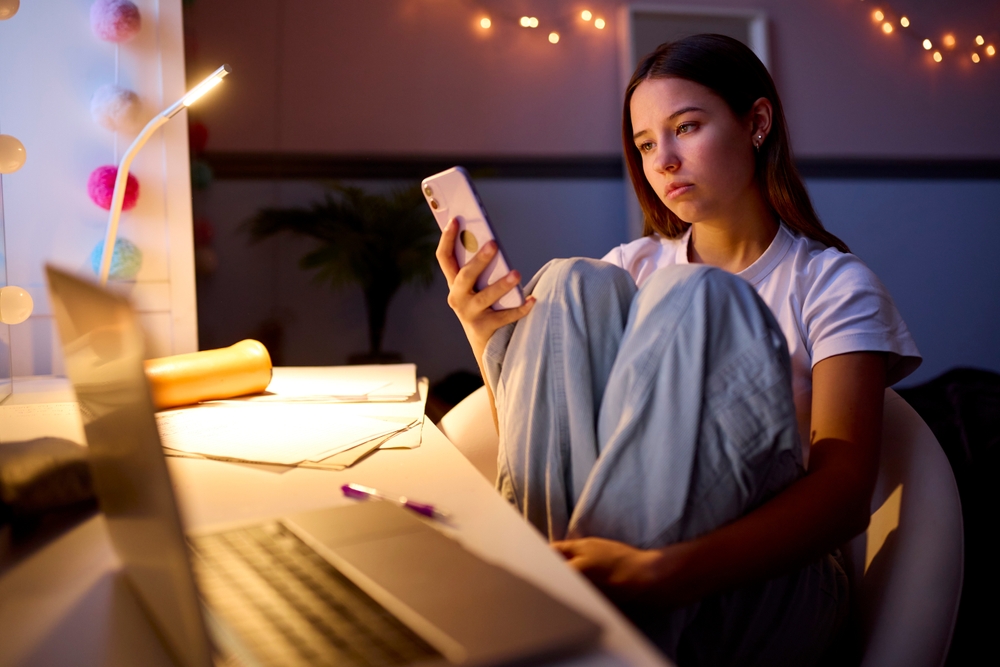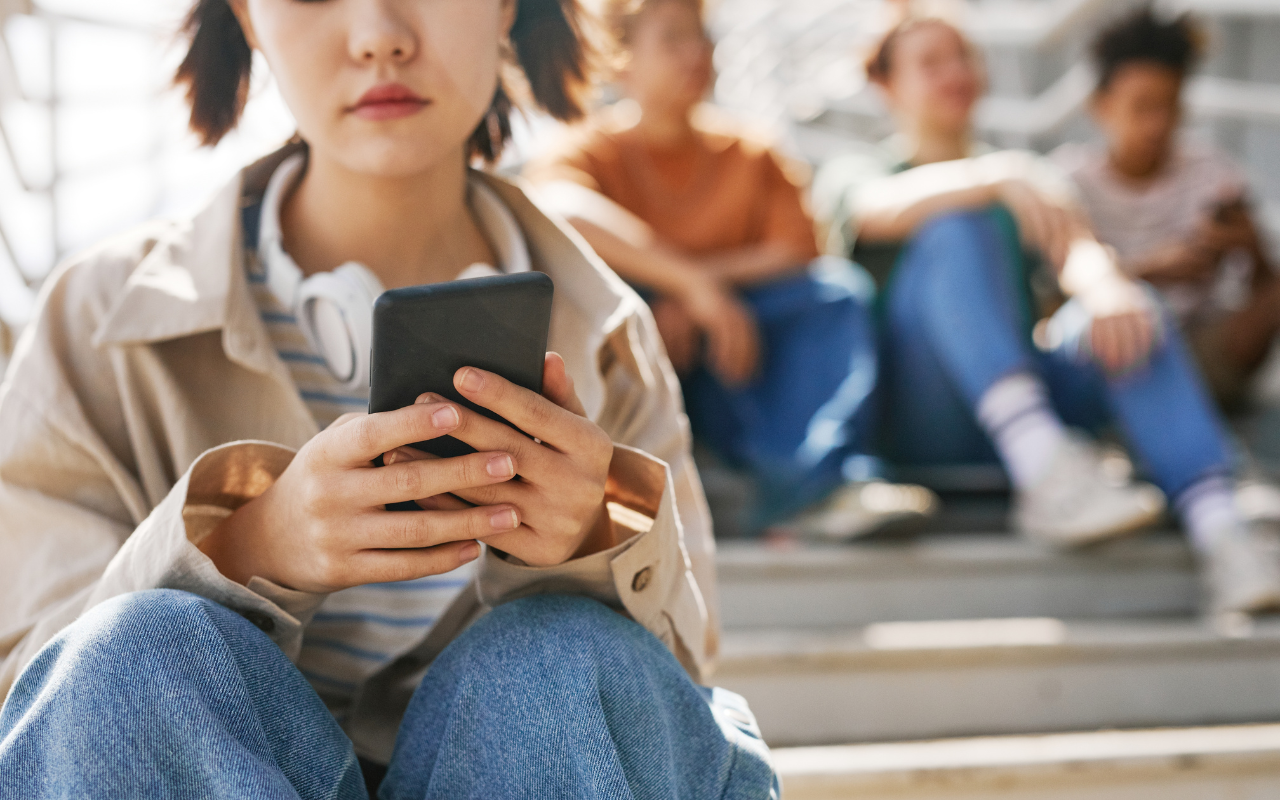The federal government plan to ban children under the age of 16 from accessing social media could have a negative impact on their mental health.
Australia’s leading mental health organisations have criticised the new social media ban for young people, saying it will cause them harm.
The ban was announced by Prime Minister Anthony Albanese on 10 September.
It will enforce a minimum age for access to social media and other relevant digital platforms. Mr Albanese said he was looking at a minimum age range of between 14 and 16.
“The safety and mental health of our young people is paramount,” Mr Albanese said.
“Parents want their kids off the phones and on the footy field. So do I.”
Mr Albanese said that social media is causing social harm.
“We know that there is mental health consequences for what many of the young people have had to deal with. The bullying that can occur online, the access to material which causes social harm, and parents are wanting a response,” Mr Albanese said.
“We’re supporting parents and keeping kids safe by taking this action, because enough is enough,” he said.

Although the government said the ban is to protect the mental health of children, Australia’s peak mental health bodies have all joined forces to say it will not.
In a joint statement, organisations including Beyond Blue, Headspace, ReachOut and the Black Dog Institute said the proposed ban will not make social media safe and will stop young people from accessing essential support.
“Social media often serves as their front door to the mental health system. Shutting this door on young people will cut them off from a free and accessible form of support — available without an appointment in an overstretched system,” the group said in the statement.
“It will expose young people to new harms, risk cutting young people off from mental health support, leaving many without any support at all.”
Research by ReachOut has found that 73% of young people use social media for mental health support and more than half of young people use social media for support in place of seeing a professional.
The Black Dog Institute’s Future Proofing Study found online social connectivity allows teenagers ways to strengthen their existing relationships and increase their wellbeing.
It also helps reduce isolation and loneliness.
The organisations agree that parents are right to be worried about the impact of social media and that reform is necessary but a blanket ban is not the answer.
“Currently, social media age restriction bans don’t work; we know children under the age of 13 are getting around current restrictions to use the main social media platforms,” Dr Aliza Werner-Seidler, co-lead of the Future Proofing Study said.
“It is encouraging that this move involves greater responsibility placed on social media companies to ensure the safety of their younger users,” she said.
“However, if the government wants to implement meaningful reform that safeguards young people’s mental health online, they should also focus their investment into evidence-based interventions to educate parents and children on social media literacy,” Dr Aliza Werner-Seidler said.
The peak mental health bodies’ recommendations are as follows:
- Co-designing reform and new safety features with young people to ensure that they are likely to be effective and fit-for-purpose;
- Social media platforms are to put an end to “sticky features” like infinite scroll;
- Mandating safety features and increased social media literacy programs for users under 16;
- Increasing support for parents on how to manage their children’s access to social media;
- Giving users control to reset their algorithm, limiting the harmful content they are exposed to.
Money has been set aside in the federal budget for a trial to begin over the coming months with legislation to be introduced by the end of the year.
Subscribe to the free InSight+ weekly newsletter here. It is available to all readers, not just registered medical practitioners.

 more_vert
more_vert
“Parents want their kids off the phones and on the footy field. So do I.” has anyone looked at the negative consequences of organised sport? As a kid I hated sport at school and would do anything to avoid it.
Also the government has overlooked that these kids will one day be voters. All they will remember about this government is that it hates kids.
I do not support a blanket ban at all. There are clearly circumstances in which social media use can be harmful or contribute to poor outcomes. However, unlike the examples others have given of alcohol and smoking (for which there are no positive use cases), there are many instances and circumstances in which social media can be, and is used in both positive and practical ways.
I do not agree that the best outcome for children (a term which covers a huge spectrum not only in terms of age but in also in terms of capacity and supports) is to prevent all use of social media, nor that potential benefits to some children from such a ban/limitations should necessarily outweigh the rights of other children to benefits from social media.
Specific areas of concerns may need more nuanced approaches, but blankets bans are inappropriate.
Disclaimer: Yes, I am a parent.
Reading the comments here, it is clear social media isn’t considered holistically. Facebook, TikTok are obvious social media platforms, but WhatsApp, iMessage, and Telegram are also considered social media platforms, especially when used in groups.
I’m quite supportive of children under 16 avoiding social media due to its harms, but the actual implementation has to be considered realistic to proceed. If you ban all children from Facebook and TikTok, they will just end up siloed into private groups on messaging platforms. This decreases the chances of misinformation being countered or removed, and also increases the risk of an echo chamber.
If children under the age of 13 are getting around the restrictions, hopefully children over the age of 13 can get around the restrictions to access mental health support. I am afraid they will just get around it to then feel inferior and not worth it, or make others feel like that (pessimistic view).
My year 9 son (almost year 10), and year 7 daughter (almost year 8) have no smart phone of their own. They are the rare ones in their classes.
I am proud of them, and proud of myself more of course!
There are so many research that has demonstrated of the harm caused by social media.
And may I say, almost all (myself included) parents, are also harmed by social media.
If we (parents) do not learn how to handle social media, how would the kids?!
I would support a ban on smart phones for children under 18 years. Then didn’t exist when I grew up and nobody missed them. Children can use non-smart phones without harm. But at the end of the day parents will bring up children well or badly despite any action from the government. Perhaps more support for parents to help them understand how to manage their children’s access to social media is a reasonable approach.
Parents with children will understand how frustrating it is to handle children with social media. They do not interact as how they should be anymore. Parents usually take shortcuts by giving children a phone so that the kids will not bother parents. Even adults are finding it difficult to manage their habits with social media and falling prey to it and ending up with anxiety, depression and insomnia.
At the early age of year 5, my daughter was undergoing depression as I did not allow her to have her phone as her friends parents bought her one and she was being isolated as she was unaware what was instagram and tic tok. Desire is limitless. Once they get hold of something, they want more and this itself causes mental health problem as they are not content. If only the ban was there, I could have told my child that it is legally not right to go to social media.
Just like alcohol and cigarettes are harmful for health, social media is very very harmful for mental health as MOST children are too young and do not have enough maturity to handle it. We do not need a study to prove this as I do see the ill effect of social media in my clinics and also in the family. It is too difficult to parents to monitor children 24/7, we have our own life and carrier to manage and the ban will make it easier to monitor children.
I for one, fully support and applaud the government to ban social media for below 16 years, in fact I will support for it to be 18 years old.